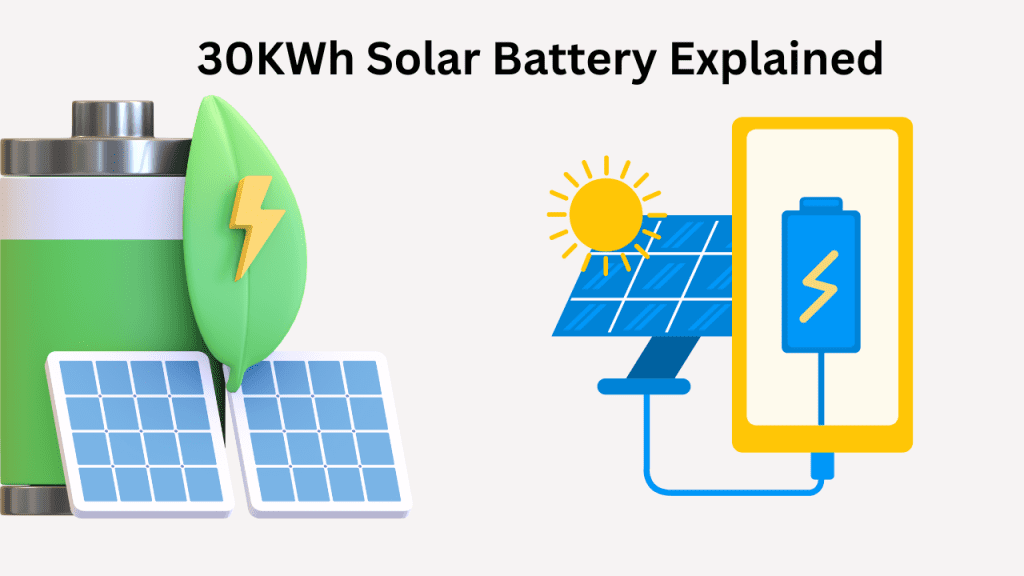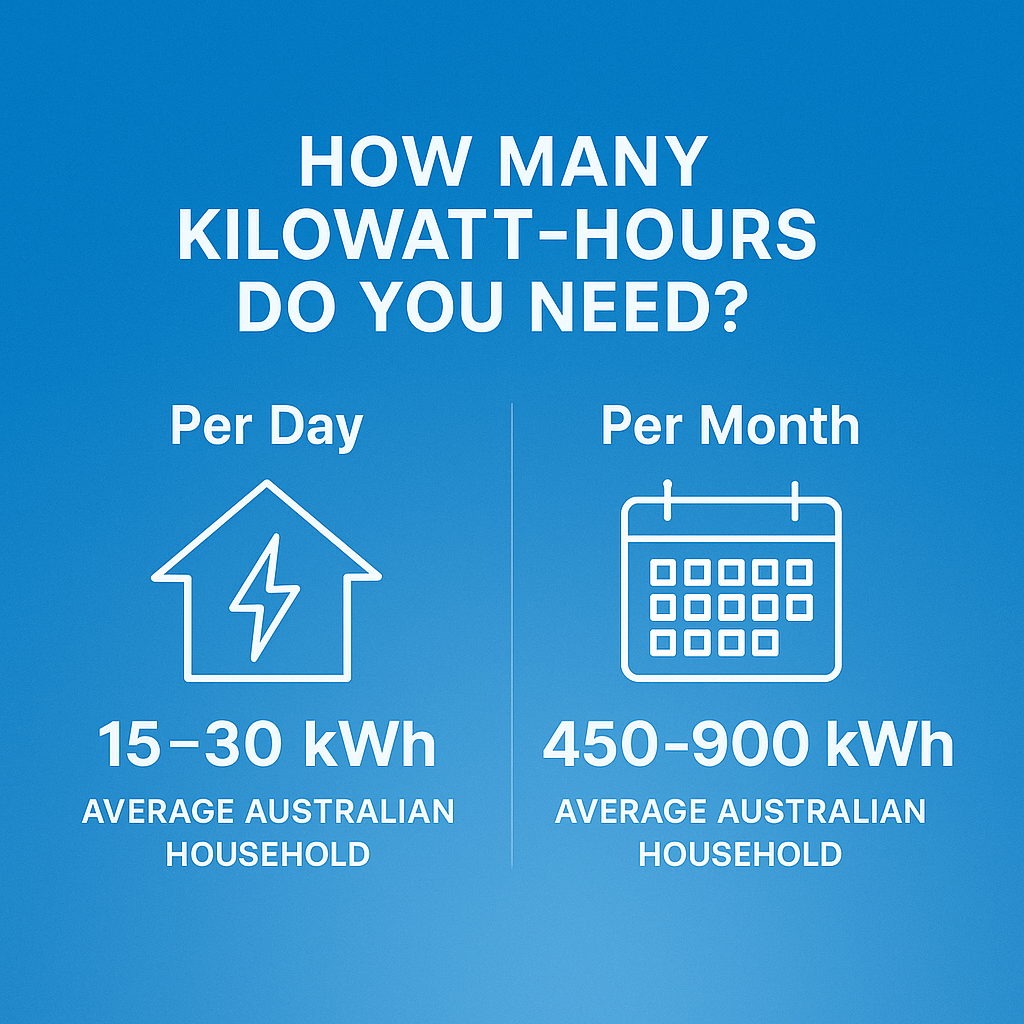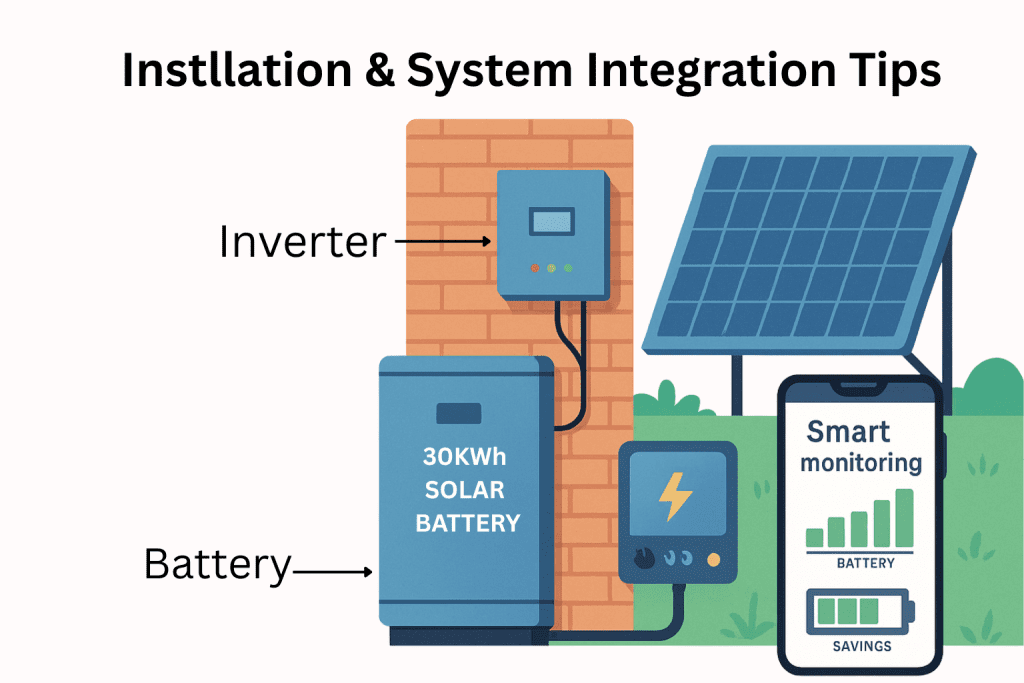SOLAR BATTERY STORAGE SYSTEM
30KWh
Ideal for large homes & heavy loads.
$6,299*
get a quote
Submit the form below, our expert will contact with you shortly!
30kWh Solar Battery
As solar energy becomes more mainstream across Australia, bigger battery systems are finding their way into homes and small businesses. A 30KWh solar battery offers serious storage capacity—enough to run high-demand households or support day-to-day operations for small commercial setups.
If you’re looking for more energy independence, backup protection, or a solution that supports EV charging and heavy appliances, this battery size could be the smart move.

DISCOVER THE BEST SOLAR BATTERY FOR YOUR SOLAR SYSTEM
30KWh
Solar Battery
High-usage homes with EV
$
6,299
*
Small Home
- Complete Energy Solution
- 24/7 Power Backup
- Seamless Integration
- High-Quality Energy Storage
40KWh
Solar Battery
Off-grid homes & medium business
$
8,299
*
Medium Home
- Complete Energy Solution
- 24/7 Power Backup
- Seamless Integration
- High-Quality Energy Storage
50KWh
Solar Battery
Large off-grid homes & business
$
9,999
*
Big Family Home
- Complete Energy Solution
- 24/7 Power Backup
- Seamless Integration
- High-Quality Energy Storage

30kWh Solar Battery Explained
A 30KWh battery means it can store 30 kilowatt-hours of energy. That’s about enough to:
Power an average home for a full day
Charge an electric car once or twice
Run essential appliances for hours during a blackout
Most lithium batteries reserve a small portion as a buffer, so the usable energy is usually around 27–28KWh—still a solid amount. This storage size is ideal for homes with big solar systems (10KW or more) or small businesses wanting better control over their electricity use.
How Many Kilowatt-Hours Do You Need?
The average Australian household uses around 15 to 30 KWh of electricity per day, which adds up to approximately 450–900 KWh per month, depending on location and lifestyle. According to the Australian Energy Regulator (AER), these numbers vary slightly by state, but a 30kWh solar battery is often enough to cover one full day of usage for a medium to large home.
However, if you’re planning for backup during blackouts or want some off-grid independence, many Australians opt for 90 to 150 KWh of storage—enough to power the home for 3 to 5 days without sunlight. This setup works best when paired with a rooftop solar system that keeps charging the battery during the day.

What does a 30KWh battery provide?
A 30KWh battery doesn’t just sound impressive—it’s a solid storage size for most Aussie households. But before jumping in, it’s important to understand what this capacity actually means.
Energy vs. Power—Know the Difference
A 30KWh battery means it can store 30 kilowatt-hours of energy. Think of it like a fuel tank filled with electricity.
Energy (KWh): This is how much electricity your battery can hold.
Power (KW): This is how fast the stored electricity is used.
So, if your household uses around 30KWh a day (which is pretty standard across Australia), a fully charged battery could, in theory, run your home for a full 24 hours—in perfect conditions.
But in the real world, a few things come into play.
What Impacts the Battery’s Lifespan?
1. Your Appliances’ Demand (Peak vs Steady Usage)
Not all devices use power the same way. Big items like air conditioners or dishwashers pull heavy loads (called peak loads) and will drain your battery quicker than steady, lower-consumption devices like lights or fridges.
2. Usable Capacity (Depth of Discharge)
Most batteries don’t enable you to use 100% of their energy. For example, lithium-ion batteries are typically designed to use around 80% of their total storage. So from a 30KWh battery, you might only get 24KWh of usable energy.
3. Solar Charging During the Day
If your battery is connected to solar panels, it can recharge with sunlight during the day. If you balance your usage and solar generation correctly, your battery can last longer—or even indefinitely—on sunny days.
4. Smart Energy Management Helps Too
Modern energy systems can automatically prioritise the important stuff, like lighting and the fridge, while turning off non-essential things temporarily. That way, your battery doesn’t get drained unnecessarily, giving you more hours of backup.
Installation & System Integration Tips

Placement matters: Indoor modular units work well for garages, while larger systems need outdoor weatherproofing.
Inverter pairing: Match with a suitable hybrid inverter to optimise performance.
AC or DC coupling: DC is more efficient but trickier for retrofits; AC is more flexible.
Safety & compliance: Must meet AS/NZS 5139 standards; only trust CEC-approved professionals.
Smart monitoring: Choose a system with app support to track usage, battery health, and savings.
Government Incentives & Costing
Installing a 30KWh solar battery involves a significant upfront investment, but rebates and incentives can help bring the cost down.
Average Cost
In Australia, the approximate cost of 30KWh systems from the Sungrow SBH Series is A$6299. Final cost depends on:
Installation complexity
Number of battery modules
Inverter type
Monitoring systems
Available Rebates
Victoria: Up to $2,950 rebate under the Solar Homes Program
South Australia: Some households still qualify under the Home Battery Scheme
New South Wales: Local councils may offer incentives
Nationwide: While batteries don’t get STCs directly, hybrid systems may qualify indirectly
To claim these, your system usually must be installed by a Clean Energy Council (CEC) accredited installer and meet certain property or income criteria
Is a 30kW battery right for you?
Whether a 30kW battery is enough will depend on your home’s energy usage, the installation of solar panels, and how you manage your energy. While it can potentially power an ordinary home for a day, installing it with solar panels or limiting usage to essential systems can significantly extend its performance.
By thoughtfully analyzing your energy needs and leveraging solar power, you can enjoy the benefits of energy independence and reduce your reliance on the grid, all while helping to contribute to a greener future.
WE INSTALL CEC-APPROVED POPULAR SOLAR BATTERIES IN AUSTRALIA






- Tesla Powerwall
Great for storing solar energy at home because it is very efficient and lasts a long time.
- Sungrow Battery
Works well and is affordable. It can be used in homes and businesses.
- Sigenergy Battery
A dependable storage option that focuses on being eco-friendly and simple to use.
- SolarEdge Battery
Works best with SolarEdge inverters and gives you excellent monitoring and control.
- Enphase Battery
BYD Battery
